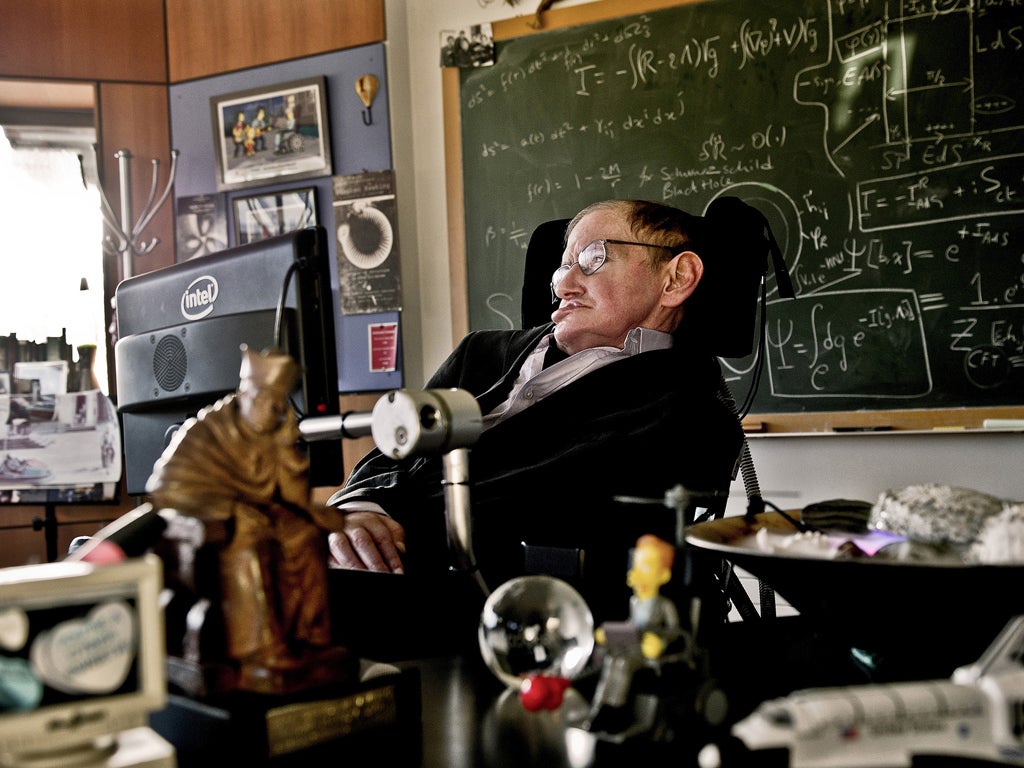Stephen Hawking: AI could be the end of humanity
Hawking was speaking at the launch of his new speech technology, which uses computers to predict what he is likely to say next

Stephen Hawking has warned that artificial intelligence could end the human race.
Machines that can think pose a threat to our very existence and “the development of full artificial intelligence could spell the end of the human race," the theoretical physicist has told the BBC.
Hawking’s warning came in response to a question about the new typing technology used in the computer that allows him to speak, which predicts the words he is going to use, the BBC reported.
Stephen Hawking has warned about the dangers of AI in the past — writing in The Independent with a group of leading scientists in May of this year to warn that humanity might not be taking the threat seriously enough.
“Whereas the short-term impact of AI depends on who controls it, the long-term impact depends on whether it can be controlled at all,” they wrote in May. “All of us should ask ourselves what we can do now to improve the chances of reaping the benefits and avoiding the risks.”
In pictures: Artificial intelligence through history
Show all 7Hawking also warned about the dangers of the internet, during the interview with the BBC. Referencing the director of GCHQ’s warning that the internet could become a command centre of terrorists, Hawking said: “More must be done by the internet companies to counter the threat, but the difficulty is to do this without sacrificing freedom and privacy”.
Subscribe to Independent Premium to bookmark this article
Want to bookmark your favourite articles and stories to read or reference later? Start your Independent Premium subscription today.

Join our commenting forum
Join thought-provoking conversations, follow other Independent readers and see their replies